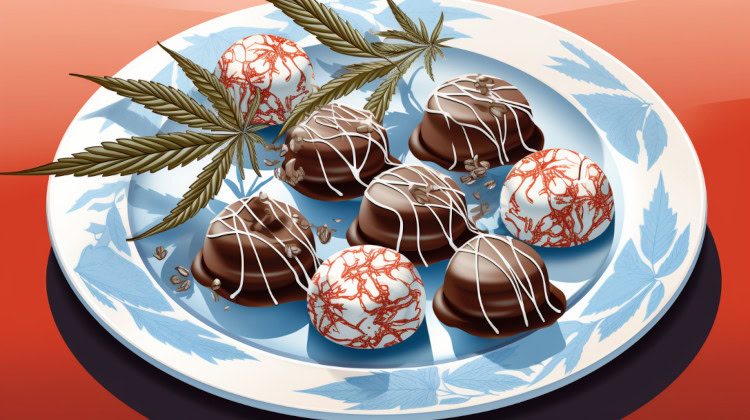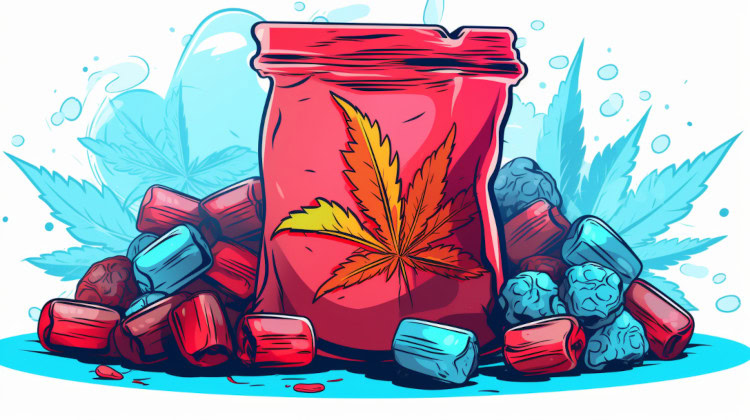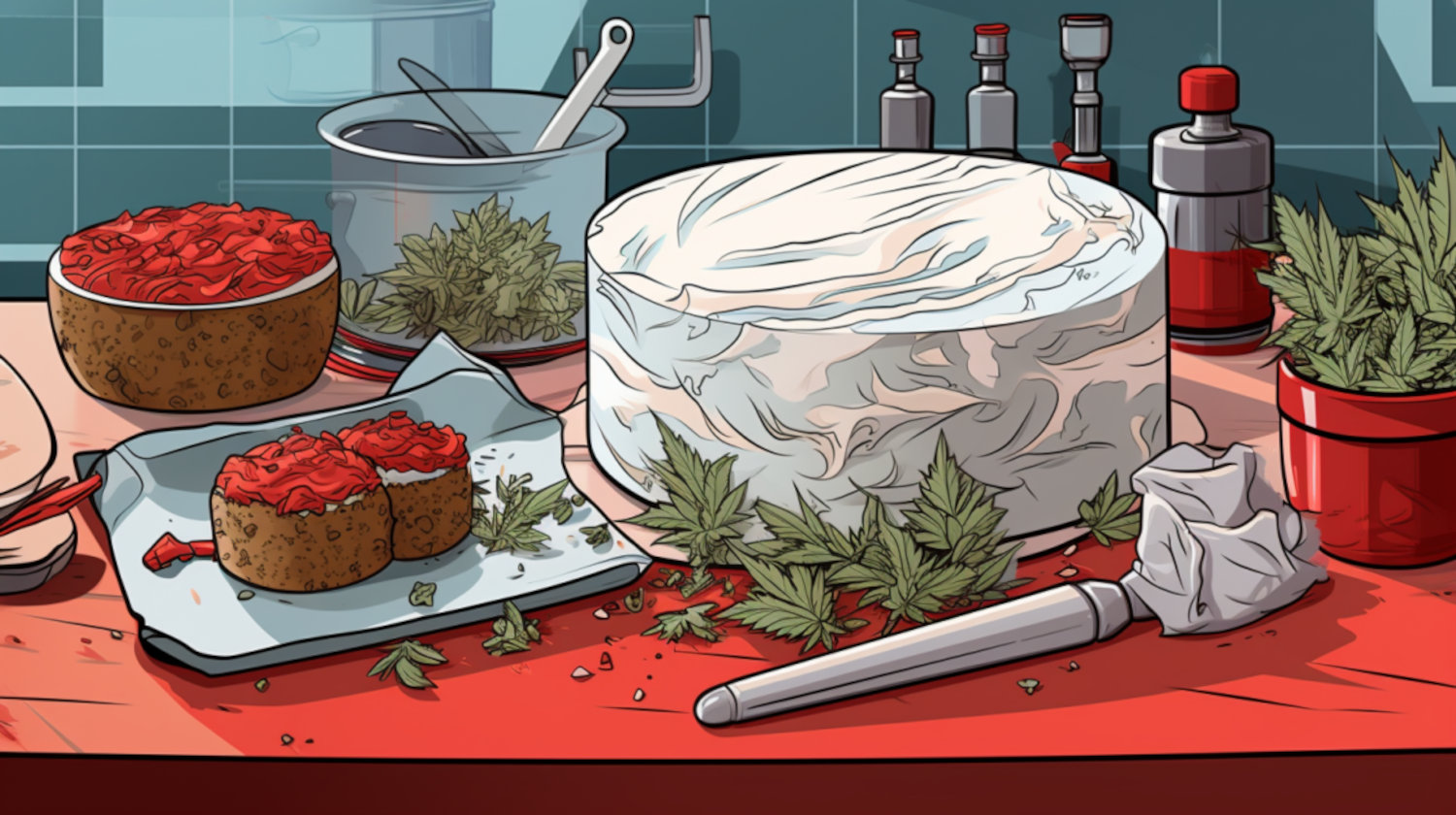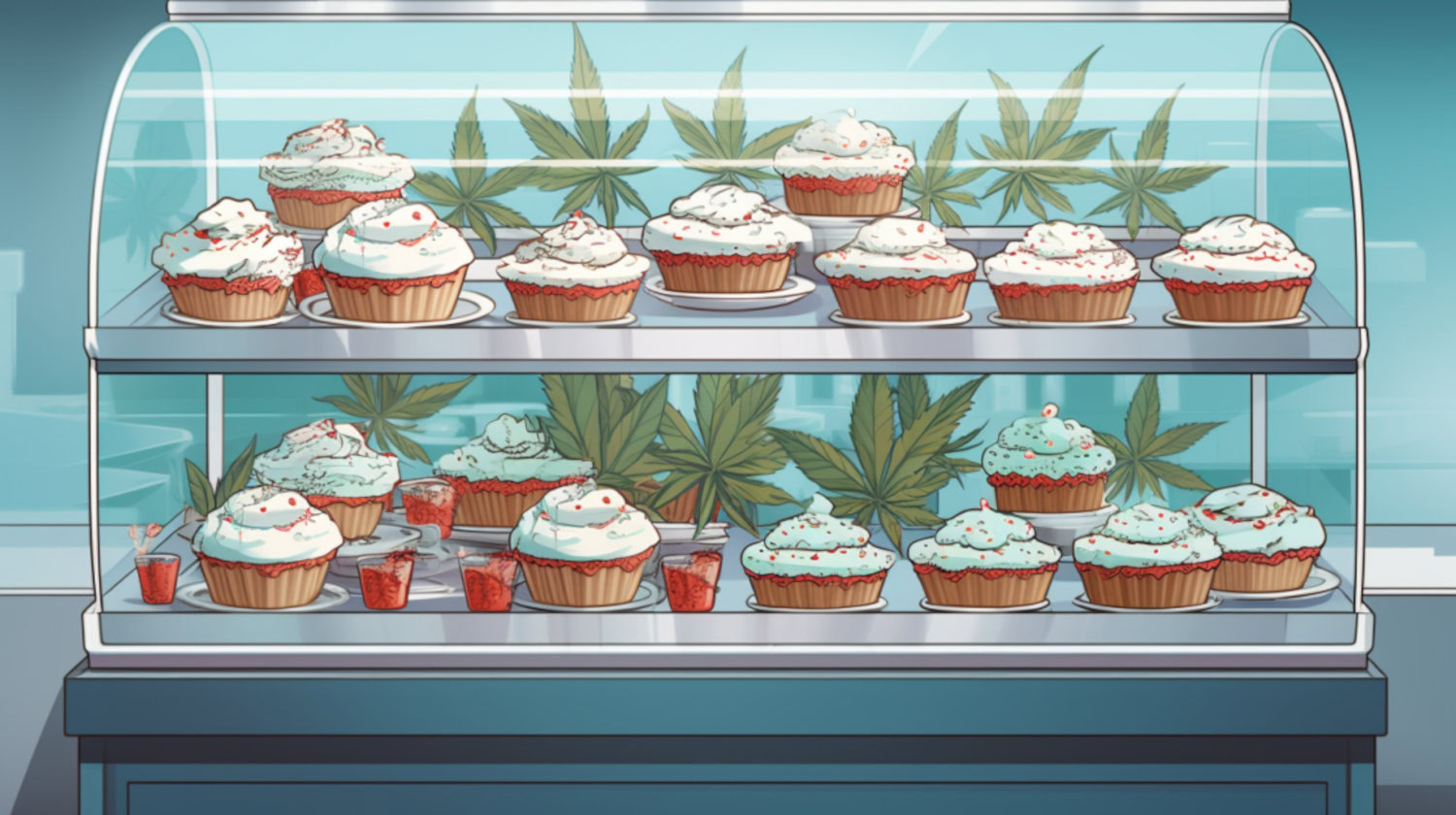Key Takeaways
- Edibles can lead to a more intense and prolonged intoxicating experience compared to inhaled THC.
- A cannabis hangover is characterized by a set of post-consumption symptoms, like fogginess, fatigue, and difficulty concentrating.
- Rest, hydration, light snacks, and fresh air may help ease lingering effects.
As more states embrace cannabis legalization, more people, including many first-timers, are trying edibles. They are a discreet and convenient way to experience the effects of the plant.1 They’re discreet and convenient, but they can also be surprisingly potent.
Research suggests that edibles are often perceived as harmless, yet they carry a greater risk of overconsumption. Unlike smoking or vaping, where effects appear within minutes, edibles can take much longer to kick in. This delay sometimes leads people to take more than intended.
Many patients wonder why edibles can leave them feeling “off” or even still high the next day after an edible.
Why Do the Effects of Edibles Last So Long?
Unlike inhaled cannabis, which quickly enters the bloodstream via the lungs and leads to almost immediate effects, edibles embark on a more complex journey, with their effects gradually developing over time.
When you consume an edible, it undergoes a distinctive metabolic process within your body. Unlike smoking or vaping, edibles can take anywhere from 30 minutes to a few hours to take full effect.
The unique journey of edibles begins in the gastrointestinal tract. Once ingested, cannabinoids, such as tetrahydrocannabinol (THC), are absorbed into the bloodstream from the gut. However, the path doesn't end there. Edibles’ most distinguishing feature is that they travel via the portal vein (the vein responsible for draining blood from the gut) to the liver, where they undergo what's known as "first-pass metabolism."
During first-pass metabolism, liver enzymes convert the THC from edibles into a metabolite known as 11-hydroxy tetrahydrocannabinol (11-OH-THC). This metabolite is notably more potent than THC itself and readily crosses the blood-brain barrier. As a result, it leads to a more intense and prolonged intoxicating experience compared to inhaled THC.2,3
How Long Can An Edible Hangover Last?

The effects of edibles can be notably intense and prolonged. They often take anywhere from 60 to 180 minutes to onset, lasting 6 to 8 hours or even more. This extended duration is a result of the unique way the body processes cannabinoids when ingested, as we just covered.
A cannabis hangover is characterized by a set of post-consumption symptoms that people may experience after using cannabis. This is particularly true of edibles. These symptoms can include grogginess, fatigue, difficulty concentrating, and, in some cases, a lingering sense of mental fog or disorientation. Of course, a cannabis hangover is distinct from the hangover commonly associated with alcohol, as it doesn't involve the same physical symptoms, such as nausea or headache.
The duration of a cannabis hangover can vary from person to person. While some individuals may find their cannabis hangover to be relatively short-lived, dissipating within a few hours, others might experience its effects for a more extended period. In some cases, these effects can linger into the following day.
At this point, the scientific research on cannabis hangovers is relatively limited, with older studies primarily focused on inhaled cannabis. However, one study suggests that the hangover effects of inhaled cannabis can last for approximately 9 hours.4 However, the duration of an edible-induced cannabis hangover may differ due to variations in metabolism and individual differences in tolerance.
The sensation of "still feeling high" the day after consuming edibles can also be linked to a combination of factors. First, as discussed, the lengthy duration of edible effects can lead to a lingering influence that persists well into the next day. When coupled with the symptoms of a cannabis hangover, such as grogginess and mental fog, it's not uncommon for consumers to experience a sense of being "still high," even when the primary intoxicating effects have subsided.
How to Recover From Edibles
A bad edible experience can leave you feeling uncomfortable and disoriented. Luckily, there are several steps you can take to recover and alleviate the discomfort. Here are some tips to help you feel better:
1. Stay Calm and Relax: The first step in recovering from a bad edible experience is to remain calm. Anxiety and stress can exacerbate the situation, so find a quiet, comfortable space where you can relax.
2. Hydrate: Drinking water can help flush your system and may help reduce the intensity of the effects. Staying hydrated is essential to avoid dehydration, which can sometimes accompany cannabis consumption. This is an especially helpful way to stop nausea from edibles.
3. Snack on Non-THC Foods: Munching on non-infused snacks can help stabilize your blood sugar levels and provide a distraction. Choose light, easily digestible foods to ease any nausea.
4. Fresh Air: If you're feeling overwhelmed, stepping outside for some fresh air and gentle physical activity can be soothing. Deep breaths and a change of scenery can work wonders.
5. Seek Support: If you're with friends or someone you trust, let them know how you feel. Having someone supportive nearby can provide comfort and reassurance.
6. Time: In most cases, the effects of edibles will subside with time. Be patient and allow your body to process the cannabinoids at its own pace.
For more information on recovering from a challenging edible experience, you can explore some of our other resources, which cover these topics in greater detail.
What To Do When You're Still High the Next Day After an Edible

A cannabis hangover, though distinct from the lasting effects of edibles, can sometimes leave you feeling less than your best. If you've experienced a cannabis hangover and are seeking ways to diminish its effects, here are some steps you can take:
1. Hydrate: Staying well-hydrated is a fundamental step in alleviating the symptoms of a cannabis hangover. Drinking water or non-caffeinated, non-alcoholic beverages can help flush your system and ease feelings of grogginess and dehydration.
2. Rest: Adequate rest is essential to allow your body to recover. If you have the opportunity, take a short nap or get a full night's sleep to help your body reset and regain energy. This step will probably feel the easiest (as you'll likely feel ready for bed throughout your weed hangover).
3. Light Exercise: On the flip side, gentle physical activity, such as a leisurely walk or stretching, can help stimulate blood flow, improve circulation, and alleviate feelings of sluggishness. You could even go for a light run, get the endorphins going, and allow yourself to get back to normal quickly.
4. Balanced Nutrition: Eating a nutritious meal can help stabilize your blood sugar levels. Opt for a balanced diet rich in fruits, vegetables, and whole grains to provide the necessary nutrients for recovery.
5. Avoid Re-dosing: It's essential to resist the temptation to consume more cannabis or edibles to counteract the hangover. Unlike with alcohol (with the "hair of the dog"), consuming more cannabis will likely make you feel worse, exacerbating the situation and prolonging your discomfort.
6. Consider Caffeine: Some individuals find that a cup of coffee or tea can help counteract the grogginess associated with a cannabis hangover.5 Caffeine can provide a temporary energy boost and increased alertness.
7. Give it Time: Cannabis hangovers typically don't last as long as the primary effects of the drug. Most individuals can expect their symptoms to subside within a few hours to a day. Be patient, as time is often the most effective remedy.
Nevertheless, you'll want to keep in mind that responses to cannabis can vary from person to person, so what works for one individual may not be as effective for another. While these tips can help alleviate the discomfort of a cannabis hangover, the best approach is always prevention. Consuming cannabis or edibles in moderation and understanding your limits can help you avoid experiencing a hangover altogether.
How to Ensure a Better Experience With Edibles
When using edibles, you must consider several key factors to maximize your enjoyment and minimize the risk of undesirable effects. Here are some essential tips to ensure a better experience:
1. Get the Dose Right: One of the most critical aspects of edibles is getting the dosage right. Start with a low dose, especially if you're new to edibles or have a low tolerance.6 Consuming more if needed is much easier than dealing with overconsumption. After all, it's better to be safe than sorry.
2. Understand Your Tolerance: Everyone's tolerance to cannabis varies. If you have experience with other forms of cannabis consumption, keep in mind that your tolerance may not directly translate to edibles. Be cautious and patient when trying edibles for the first time or if it's been a while since your last consumption.
3. Timing Matters: The onset of effects with edibles is slower than with smoking or vaping. It can take anywhere from 30 minutes to a few hours for the full effects to kick in. Avoid impatience and resist the urge to consume more during this period. Patience is your ally with edibles.
4. Have Healthy Snacks On Hand: Having some non-infused, healthy snacks is a good idea. These can help stabilize blood sugar levels and distract you if you feel overly "high."
5. Stay Hydrated: Proper hydration is essential for any cannabis consumption method. Water or non-caffeinated beverages can help mitigate any dry mouth or dehydration that can occur with edibles.
6. Choose the Right Setting: Your environment plays a key role in your edibles experience. Opt for a comfortable, safe, and familiar setting where you feel relaxed and at ease. Avoid unfamiliar or potentially stressful situations when trying edibles.
7. Be Mindful of Food Choices: The type of edible matters. Some products, like gummies or chocolates, are easier to dose accurately, while homemade edibles may have an uneven distribution of cannabinoids. Stick to reputable, lab-tested products when possible.
8. Avoid Alcohol: Consuming alcohol alongside edibles can intensify the effects and may lead to an uncomfortable experience. It's advisable to steer clear of alcohol when using edibles to avoid any potential unpleasantness brought on by the infamous "crossfade."
9. Don't Mix Strains: Mixing different strains or types of cannabis can lead to unpredictable effects. Stick to one kind of edible at a time to better gauge its impact.
10. Plan Ahead: Edibles can provide a long-lasting experience. Make sure you have enough time set aside to enjoy the effects without the need to rush or attend to other responsibilities.
References
- Spindle TR, Bonn-Miller MO, Vandrey R. Changing landscape of cannabis: novel products, formulations, and methods of administration. Current Opinion in Psychology. 2019;30:98-102. doi:https://doi.org/10.1016/j.copsyc.2019.04.002 ↩︎
- Barrus D, Capogrossi K, Cates S, et al. Tasty THC: Promises and Challenges of Cannabis Edibles. Methods Rep RTI Press. Published online November 15, 2016. doi.org/10.3768/rtipress.2016.op.0035.1611 ↩︎
- Schwilke EW, Schwope DM, Karschner EL, et al. 9-Tetrahydrocannabinol (THC), 11-Hydroxy-THC, and 11-Nor-9-carboxy-THC Plasma Pharmacokinetics during and after Continuous High-Dose Oral THC. Clinical Chemistry. 2009;55(12):2180-2189. doi:https://doi.org/10.1373/clinchem.2008.122119 ↩︎
- Chait LD, Fischman MW, Schuster CR. “Hangover” effects the morning after marijuana smoking. Drug and Alcohol Dependence. 1985;15(3):229-238. doi:https://doi.org/10.1016/0376-8716(85)90002-x ↩︎
- Cornelis MC, Erlund I, Michelotti GA, Herder C, Westerhuis JA, Tuomilehto J. Metabolomic response to coffee consumption: application to a three-stage clinical trial. Journal of Internal Medicine. 2018;283(6):544-557. doi:https://doi.org/10.1111/joim.12737 ↩︎
- MacCallum CA, Russo EB. Practical considerations in medical cannabis administration and dosing. European Journal of Internal Medicine. 2018;49(49):12-19. doi:https://doi.org/10.1016/j.ejim.2018.01.004 ↩︎
The information in this article and any included images or charts are for educational purposes only. This information is neither a substitute for, nor does it replace, professional legal advice or medical advice, diagnosis, or treatment. If you have any concerns or questions about laws, regulations, or your health, you should always consult with an attorney, physician or other licensed professional.




